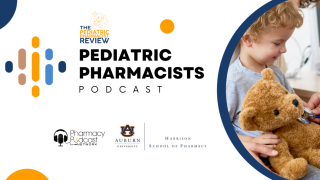COVID-19 Vaccinations, What Should We Do?

Vaccines are the essential weapon for preventing infections and fighting the COVID-19 pandemic. However, it is now well established that vaccines lose effectiveness over time, wrote Marcello Candelli, Emergency Department, Fondazione Universitaria Policlinico A Gemelli–IRCCS, Catholic University of Sacred Heart of Rome, in a recent editorial.
For this reason, health authorities and drug regulatory agencies in several countries have approved the administration of an additional dose of vaccine (called a booster) to individuals 3–5 months after the completion of the vaccination cycle.
This approach appears to maintain immunity against the evolving SARS-CoV-2 betacoronavirus effectively.
In The Lancet Infectious Diseases, Giovanni Corrao and colleagues published the results of a real-world study on January 27, 2022, that examined the infection rate of more than 5,000,000 vaccinated individuals with a follow-up of nine months.
This study confirms data already available for shorter follow-up periods, which showed decreased protection against infection.
These findings provide documentation that the protection against COVID-19 offered by currently available vaccines undergoes a clear decline during the months following vaccination.
However, they documented that protection against severe forms of COVID-19 remained, albeit attenuated, with both adenoviral and mRNA vector vaccines.
What conclusions can be drawn from this information?
The edited editorial continues below.
First, it is imperative to continue the vaccination campaign in people who do not yet have vaccine protection, especially if they are at risk of developing severe forms of the disease.
It is, therefore, necessary to ascertain the main factors that lead these high-risk individuals not to be vaccinated. Vaccine hesitancy is undoubtedly the most important.
And second, the spectacularization of scientific information on COVID-19 has led to appointed experts spreading contradictory opinions and messages and the public losing confidence in science.
With the emergence of new highly contagious variants such as the omicron variant, it seems necessary to encourage the administration of booster doses to high-risk individuals soon after the second dose.
The loss of protection against infection by the COVID-19 vaccines and the emergence of the highly transmissible variants prevent the vaccine alone from controlling the pandemic.
Three hypotheses have been proposed to explain the occurrence of the omicron variant, which differs in several respects (about 30 mutations) from the other variants of SARS-CoV-2.
The first is that it evolved in an immunocompromised human chronically infected with SARS-CoV-2. The second is that it evolved in areas where viral sequencing is absent or infrequent. The third is that it evolved in an animal reservoir before human spillover.
Regardless of the correct hypothesis, the lesson is the same.
Countries with high numbers of immunocompromised people, where tracing of variants is rarely done, and where contact with animals potentially susceptible to coronaviruses is possible, need to be quickly involved in vaccination campaigns.
Africa is a huge continent that has all these characteristics and, at the same time, has a very low vaccination rate.
We cannot think of getting out of the pandemic emergency if we do not include Africa and all developing countries in a capillary vaccination campaign to prevent the emergence and spread of further and more dangerous variants that can evade both natural and vaccine-triggered immune responses and have higher mortality.
The scenario of a variant that is similarly transmissible to the omicron variant and has high mortality would be catastrophic and must be avoided at all costs.
Moreover, promising and effective new therapies cannot yet have a substantial effect because they are scarce, expensive, and unlikely to have a measurable effect in the short term.
The fight against this betacoronavirus must be waged on numerous open fronts: aggressive global vaccination campaigns, nonpharmacological interventions, strengthening critical care systems and finding therapies that are effective at every stage of the disease.
The road to normality is still very long, concluded Marcello Candelli’s edited editorial.
PrecisionVaccinations publishes fact-checked, research-based antibody, antiviral, and vaccine news.
Our Trust Standards: Medical Advisory Committee
























